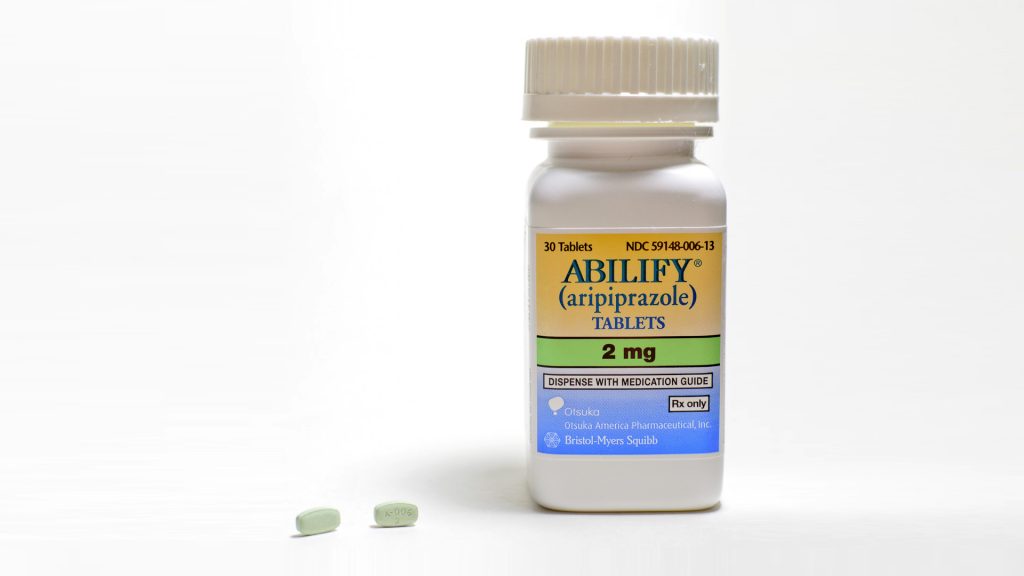On Thursday, Bristol-Myers Squibb agreed to settle a lawsuit including charges from 43 states and the District of Columbia for $19.5 million. The charges brought in the lawsuit concern the marketing of Abilify, an atypical antipsychotic drug produced to treat multiple forms of bipolar, schizophrenia, and Tourette’s disorder.
The Problem With Abilify
Abilify was approved by the US Food and Drug Administration (FDA) in 2002. The drug, marketed and manufactured by Bristol-Myer Squibb in association with Otsuka America Pharmaceutical Inc., was later given a “black box” warning label by the FDA in 2006. However, Bristol-Myer Squibb continued to market Abilify and promoted off-label uses of the drug that were not approved by the FDA, according to the lawsuit.
The lawsuit alleges that Bristol-Myer Squibb downplayed some of the drug’s serious side effects including a higher risk of suicide in children and teens, and an increased mortality rate in elderly dementia patients. Although Abilify has also been associated with several other side-effects, including:
- Reduced impulse control
- Twitching of the limbs, eyes, lips, tongue, and lips
- Nausea
- Weight gain
- Blurred vision
- Feeling of restlessness
Conditions of the Settlement
Along with a $19.5 million payment, the settlement also requires Bristol-Myer Squibb to reform and maintain marketing, sales and disclosure strategies. Specifically, the settlement requires that Bristol-Myer Squibb to:
- Stop compensating health care providers for attending promotional meetings or other activities regarding Abilify.
- Refrain from creating scientifically unsupported comparisons between Abilify and other medications or products.
- Not to allow company staff, who do not have a scientific background, from making opinions about Abilify that may suggest off-label usage.
- Discontinue providing grants to promote Abilify, including educational grants or any other form of grant.
- Stop providing samples of Abilify to health care providers whose specialities do not coincide with the FDA-approved label guidelines.
- Provide clear and accurate risk information when promoting Abilify.
- Disclose compensation of speakers and consultants related to abilify.
- Create and maintain records concerning unsolicited requests for off-label information about Abilify, as well as information provided to the requestor.
- Reform marketing techniques of company sales and marketing staff to ensure the promotion of Abilify for its FDA-approved uses only.
State Responses to the Abilify Lawsuit
Regarding the Abilify class-action, Bristol-Myer Squibb stated, “We have resolved this matter with 42 states and the District of Columbia. The multi-state Consumer Protection Act investigation is a follow-on to the 2007 civil settlement the company reached with the federal government involving Abilify and released 2008 civil Medicaid-focused settlements the company reached with a number of states.”
The company claims no wrongdoing, according to the Associated Press, and states, “We are pleased to put this matter behind us so that we can focus on making transformation medicines for patients battling serious diseases.”
However, many state attorneys voiced their discontent with Bristol-Myer Squibb’s actions leading to the settlement on Thursday. New Jersey Attorney General, Christopher Porrino, stated “When it comes to the marketing of prescription drugs, anyone who makes misleading or unfounded statements, minimizes or fails to disclose associated dangers and aggressively promotes a product for unapproved uses is betraying the public trust and, potentially, putting consumers at risk.”
Another example, Texas Attorney General Ken Paxton stated, “BMS put Texans’ lives at risk when it marketed Abilify for uses not approved by the FDA.” Yet another criticism comes from Michigan Attorney General, Bill Schuette, who stated, “Deceptive medical marketing practices threaten the health and wellbeing of Michigan families. Michigan consumers shouldn’t have to wonder if the drugs prescribed to them by their physician is the right medicine for them.”

Leave a Reply